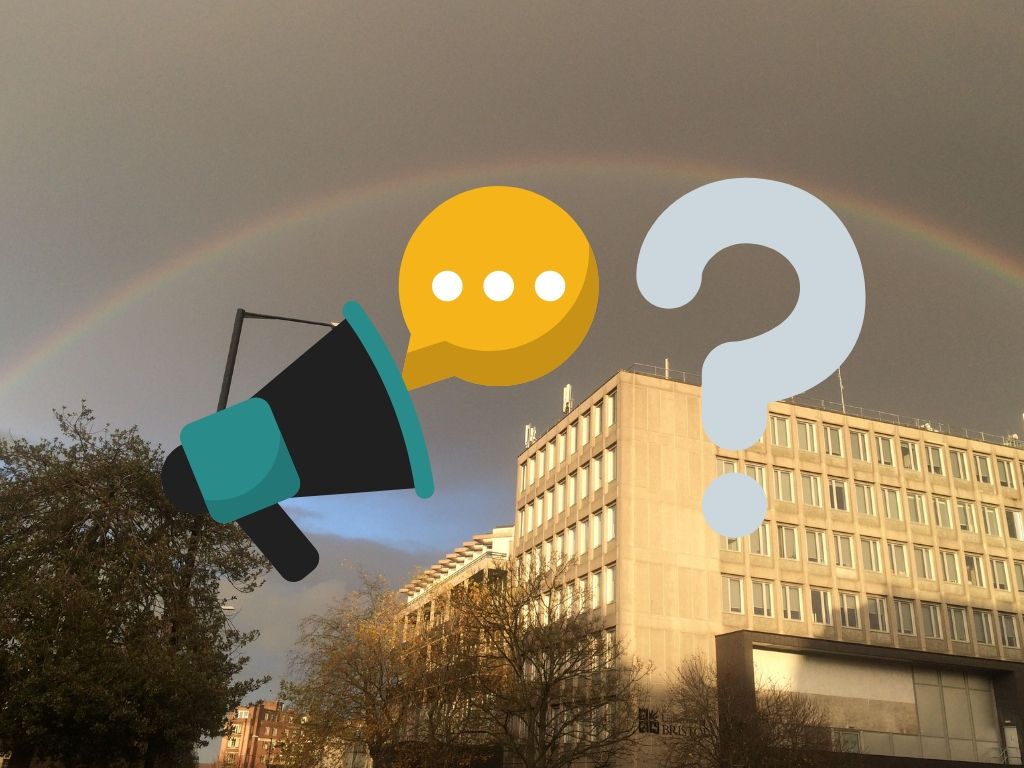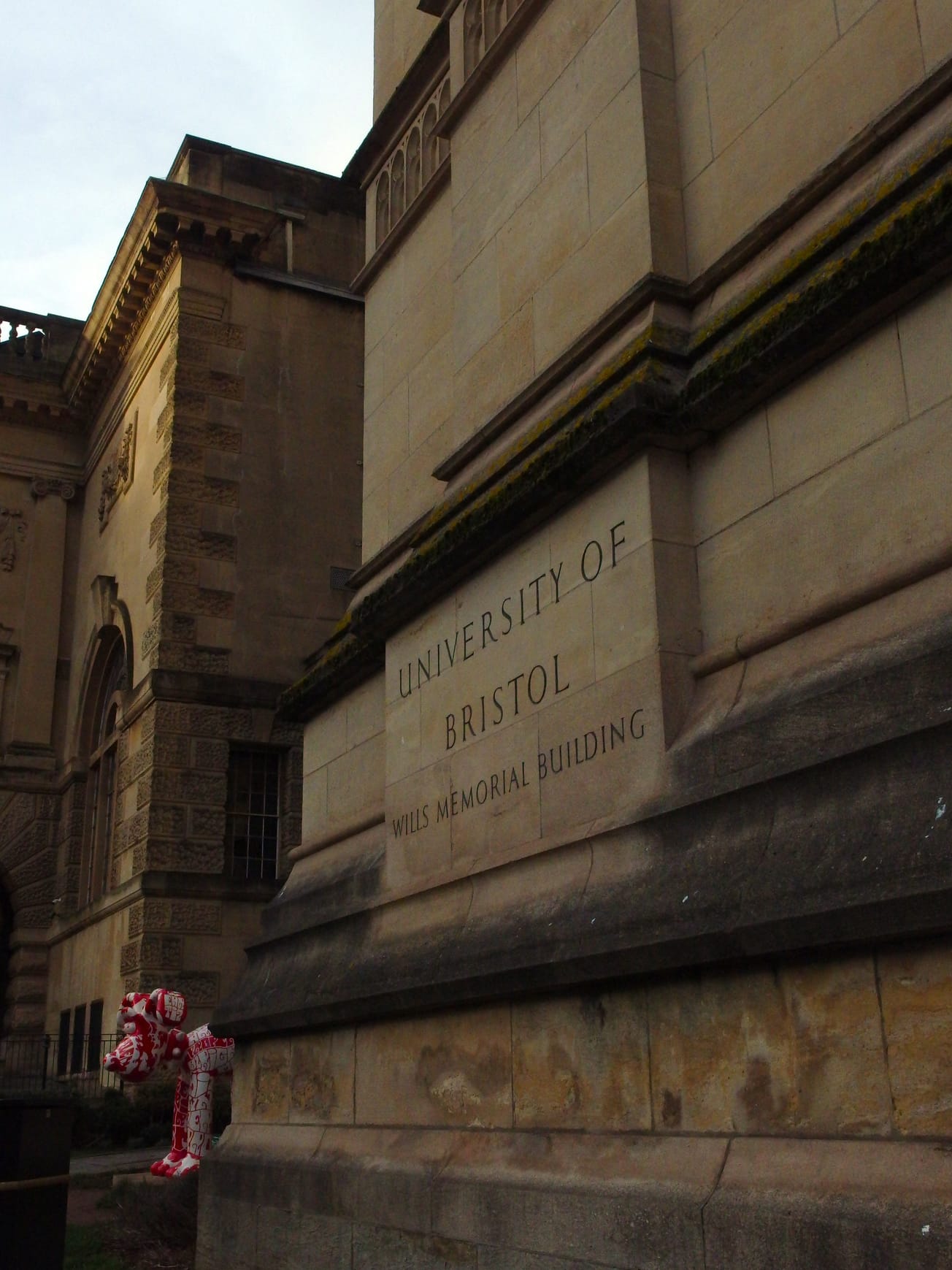By Ed Southgate, co-Editor in Chief
A Durham student has been removed from a panel discussion designed to interrogate whether SU legislation threatens students' free speech after a joint Bristol SU-University assessment concluded he poses a security threat.
Angelos Sofocleous, a postgraduate Philosophy student at Durham, was due to speak on a panel this week about whether free speech is being threatened on campus. Bristol SU was informed of his invitation three weeks in advance, but asked that the event be re-scheduled so that security measures could be implemented in advance of Sofocleous' arrival.
Sofocleous, a vocal advocate against no-platforming policies, was accused of transphobia last year when he retweeted an article by a Spectator columnist with the headline: 'Is it a crime to say women don't have penises?'.
The Philosophy student was sacked as assistant editor of his University journal as a result of the retweet, but Durham SU later apologised for his dismissal as being 'unfair and undemocratic'.
Having consulted with the police, the SU deemed that public disorder would be 'highly likely'. The union refused to release the assessment report explaining why this decision was made, but the organisers claim they were verbally told in a meeting that it is to do with the tweet.
I have just been de-platformed by @Bristol_SU from a panel debate on ‘Free speech on campus’ organized by the University of Bristol Free Speech Society due to concerns that “my presence might spark protests which might lead to physical violence”. pic.twitter.com/2U9ChkVFGL
— Angelos Sofocleous (@Sofocleous_A) February 10, 2019
The SU has denied accusations that they refused Mr Sofocleous from speaking, or that they are censoring free speech. 'Bristol SU has not refused Angelos Sofocleous as a speaker. Bristol SU is committed to freedom of speech and the rights of all our students to discuss difficult and sensitive topics', a spokesperson said.
'Bristol SU and the University of Bristol have a joint external speakers procedure, which applies to all bookings and events. Bristol SU made an initial assessment of the speaker and recommended that security would be needed to ensure this event could run safely and smoothly.
'The Freedom of Speech Society was informed of this one week prior to the event with the recommendation that the event is rearranged in order to allow security measures to be put in place and the event to go ahead.'
A spokesperson for the Free Speech Society, who organised the event, attacked the decision as 'unreasonable' and one which shows 'a lack of concern with free speech'.
'We think that if [the SU] cared more about it, they wouldn't make us cancel a speaker like that at the last minute', they said.
They argue that rescheduling the discussion would lead to difficulties in finding another date with which all the speakers are able to attend.
The event will ask questions such as 'to what extent do no-platform policies and other Student Union legislation threaten students' free speech?', and what the balance should be between protecting vulnerable groups from harmful language and protecing free speech.
It also asks whether free speech is under attack on campuses, a question which the society claims this move has answered.
Angelos Sofocleous echoed the society's views on this. 'Nothing could provide a better indication of the current status of social justice orthodoxy in academia than banning a speaker from an event titled ‘Free speech on campus’, he told Epigram.
He added: 'The way Bristol SU is deciding which views its students have the right to listen to is at least patronizing.
Bristol SU has not refused @Sofocleous_A as a speaker. Bristol SU is committed to freedom of speech and the rights of all our students to discuss difficult and sensitive topics.
— Bristol SU (@Bristol_SU) February 11, 2019
'There is no harm in dialogue and debate - in fact, engaging in a debate is a win-win situation: You are either going to get your views changed, or you will get someone else’s views changed. It is saddening that the SU of a respected institution, the University of Bristol, acts in a way in which it undermines democracy and free speech, the very principles which it is supposed to represent.'
His removal from Bristol's panel discussion comes after the UK Government published guidelines on free speech on university campuses. The guidance urges that speakers should not be banned from campus just because the 'offend, shock or disturb' students.
Universities Minister, Chris Skidmore, said the guidance 'sets out a clear benchmark of good practice around how these organisations can work together to facilitate and uphold free speech'.
He added that free speech is an 'integral' aspect of campus life.
Sir Michael Baber, Chair of the Office for Students, welcomed the guidance as 'important and timely'.
The University has been approached for comment.
Featured Image: Epigram / Zoe Crowther








